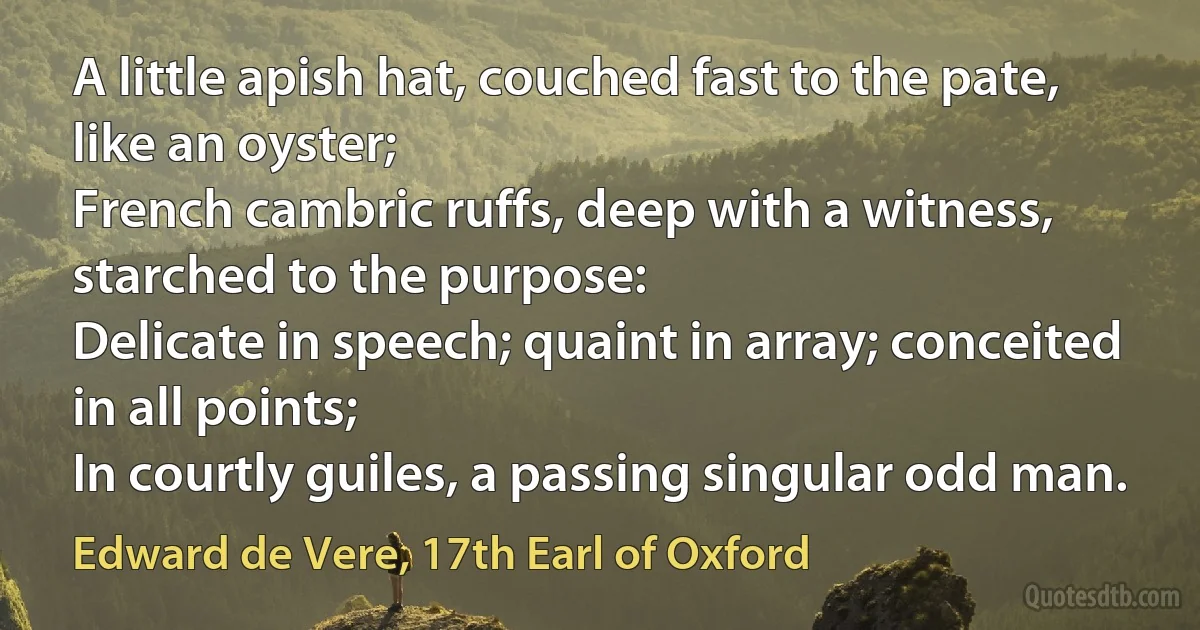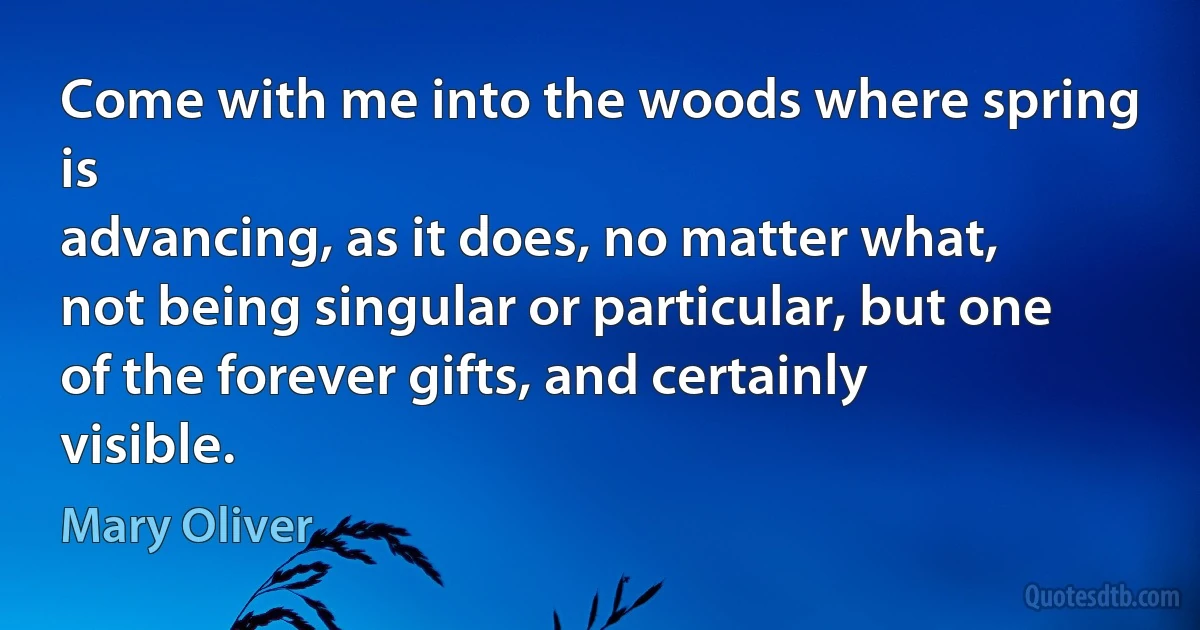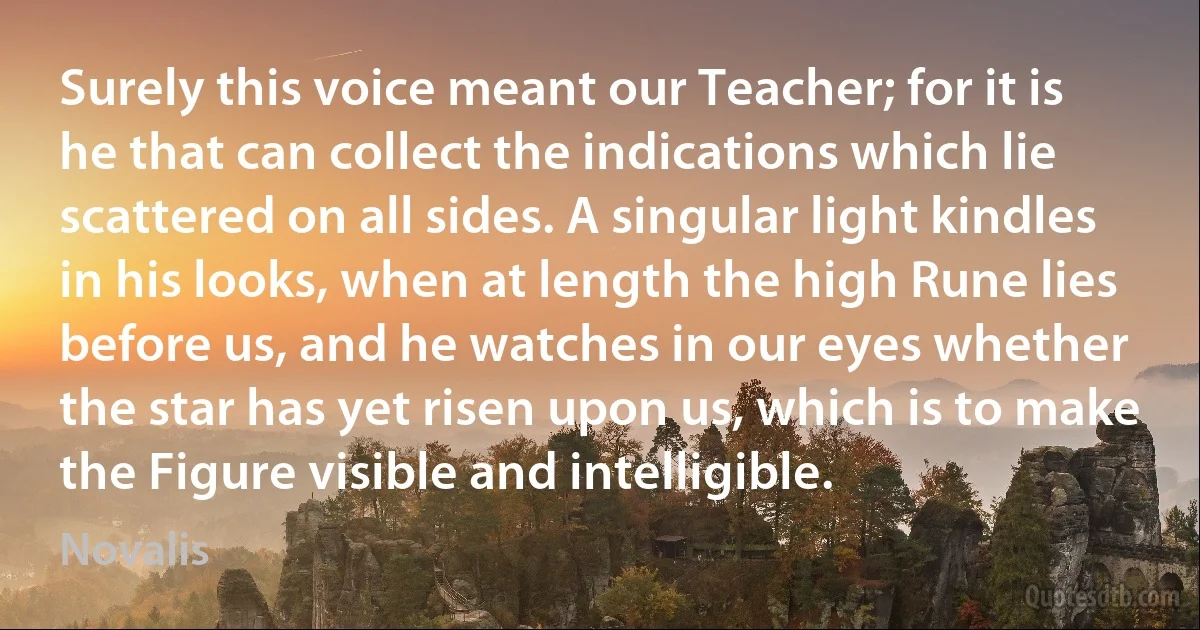Singular Quotes - page 4
I think Mr. Bush faces a singular problem best defined, I think, as the absence of effective conservative ideology - with the result that he ended up being very extravagant in domestic spending, extremely tolerant of excesses by Congress, and in respect of foreign policy, incapable of bringing together such forces as apparently were necessary to conclude the Iraq challenge.
There will be no legacy for Mr. Bush. I don't believe his successor would re-enunciate the words he used in his second inaugural address because they were too ambitious. So therefore I think his legacy is indecipherable.

William F. Buckley
Man must have light. He must live in the fierce full constant glare of light, where all shadow will be defined and sharp and unique and personal: the shadow of his own singular rectitude or baseness. All human evils have to come out of obscurity and darkness, where there is nothing to dog man constantly with the shape of his own deformity.

William Faulkner
As a performer I've played for 50,000 people and I've played for 50 people and I can tell you that it is harder to play for 50 people. 50,000 people have a singular persona, not so with 50. Each person has an individual, separate identity, a world unto themselves. They can perceive things more clearly. Your honesty and how it relates to the depth of your talent is tried.

Bob Dylan
Cleverness of speech was a quality which nearly all the young men of the time sought to attain, but Cato was singular in his keeping up the severe traditions of his ancestors in labouring with his own hands, eating a simple dinner, lighting no fire to cook his breakfast, wearing a plain dress, living in a mean house, and neither coveting superfluities nor courting their possessors.

Plutarch
In the history of madness, two events signal this change with singular clarity: in 1657, the founding of the Hôpital Général, and the Great Confinement of the poor; and in 1794, the liberation of the mad in chains at Bicêtre. Between these two singular and symmetrical events, something happened, whose ambiguity has perplexed historians of medicine: blind repression in an absolutist regime, according to some, and, according to others, the progressive discovery, by science and philanthropy, of madness in its positive truth. In fact, beneath these reversible meanings, a structure was taking shape, which did not undo that ambiguity but was decisive for it. This structure explains the passage from the medieval and humanist experience of madness to the experience that is our own, which confines madness in mental illness.

Michel Foucault
With very slight straining of equivalents, Thomas might now be written thus:-
By the term God, is meant a Prime Mover which supplies all energy to the universe, and acts directly on man as well as on all other creatures, moving him as a mechanical motor might do; but man, being specially provided with an organism more complex than the organisms of other creatures, enjoys an exceptional capacity for reflex action,- a power of reflexion,- which enables him within certain limits to choose between paths; and this singular capacity is called free choice or free-will. Of course, the reflexion is not choice, and though a man's mind reflected as perfectly as the facets of a lighthouse lantern, it would never reach a choice without an energy which impels it to act. [...]
The scheme seems to differ little, and unwillingly, from a system of dynamics as modern as the dynamo.

Henry Adams
Charles Francis Adams's memory was hardly above the average; his mind was not bold like his grandfather's or restless like his father's, or imaginative or oratorical - still less mathematical; but it worked with singular perfection, admirable self-restraint, and instinctive mastery of form. Within its range it was a model.

Henry Adams
Acting in conformity with reason, in the singular, and acting for good reasons, in the plural, are two different things insofar as reason is objective, whereas reasons are subjective. From an external point of view, we can evaluate a policy as being in conformity with reason or not. From an internal point of view, one can evaluate an action as being rational or not. From this difference it follows that only rationality can be used for explanatory ends. It is only insofar as the agent has made the demands of reason his own that the latter may give rise to, and possibly explain, specific behaviors. The assessment of the actor and that of the observer need not coincide.

Jon Elster
The cinema is about other things than storytelling. What you remember from a good film -- and let's only talk about good films -- is not the story, but a particular and hopefully unique experience that is about atmosphere, ambience, performance, style, an emotional attitude, gestures, singular events, a particular audio-visual experience that does not rely on the story.

Peter Greenaway
I have read your pleasant letter of 14th with singular pleasure. I discern your kind inclination and affection which I feel deeply obliged to requite [you] with service and friendship. Because of [my] inclination to do this, [and] in spite of your wish (of Constantijn Huygens], [I] am sending [you] along [with this letter] a painting, hoping that you will accept it, because it is the first momento which I offer you, Sir.... postscripttum]: My [dear] Sir: hang this picture in a bright light and in such a manner that it can be viewed from a distance. It will then sparkle at its best.

Rembrandt
The geometric point is an invisible thing. Therefore, it must be defined as an incorporeal thing. Considered in terms of substance, it equals zero... Thus we look upon the geometric point as the ultimate and most singular union of silence and speech. The geometric point has, therefore, been given its material form, in the first instance, in writing. It belongs to language and signifies silence.

Wassily Kandinsky
Or say it is Pentecost: the hawthorn-tree,
set with coagulate magnified flowers of may,
blooms in a haze of light; old chalk-pits brim
with seminal verdue from the roots of time.
Landscape is like revelation; it is both
singular crystal and the remotest things.
Cloud-shadows of seasons revisit the earth,
odourless myrrh bourne by the wandering kings.

Geoffrey Hill
An authorship that began with Either/Or and advanced step by step seeks here its decisive place of rest, at the foot of the altar, where the author, personally most aware of his own imperfections and guilt, certainly does not call himself a truth-witness but only a singular kind of poet and thinker who, without authority, has had nothing new to bring but "has wanted once again to read through, if possible in a more inward way, the original text handed down from the fathers” Preface P. 165.

Søren Kierkegaard
A case can be made... that secrecy is for losers. For people who don't realize how important information really is. The Soviet Union realized this too late. Openness is now a singular, and singularly American, advantage. We put it in peril by poking along in a mode of an age now past. It is time to dismantle government secrecy, this most pervasive of Cold War-era regulations. It is time to begin building the supports for the era of openness that is already upon us.

Daniel Patrick Moynihan



